Home > Articles > Special Series > Bill Emerson—The Country Gentlemen: Round Two
Bill Emerson—The Country Gentlemen: Round Two

Bill Emerson was a founding member of the Country Gentlemen. The band formed in 1957 as a trio with Bill Emerson on the banjo, John Duffey on the mandolin, and Charlie Waller playing guitar. After a short time they added Larry Lahey on bass. The group originally came together to hold a weekly spot at the Admiral Grill in Bailey’s Crossroads, Virginia for Buzz Busby and the Bayou Boys. Buzz Busby and two of his band members—Eddie Adcock and Vance Trull—had been in an automobile crash and could not perform while recovering. Bill Emerson was a member of the band, but was not involved in the incident.
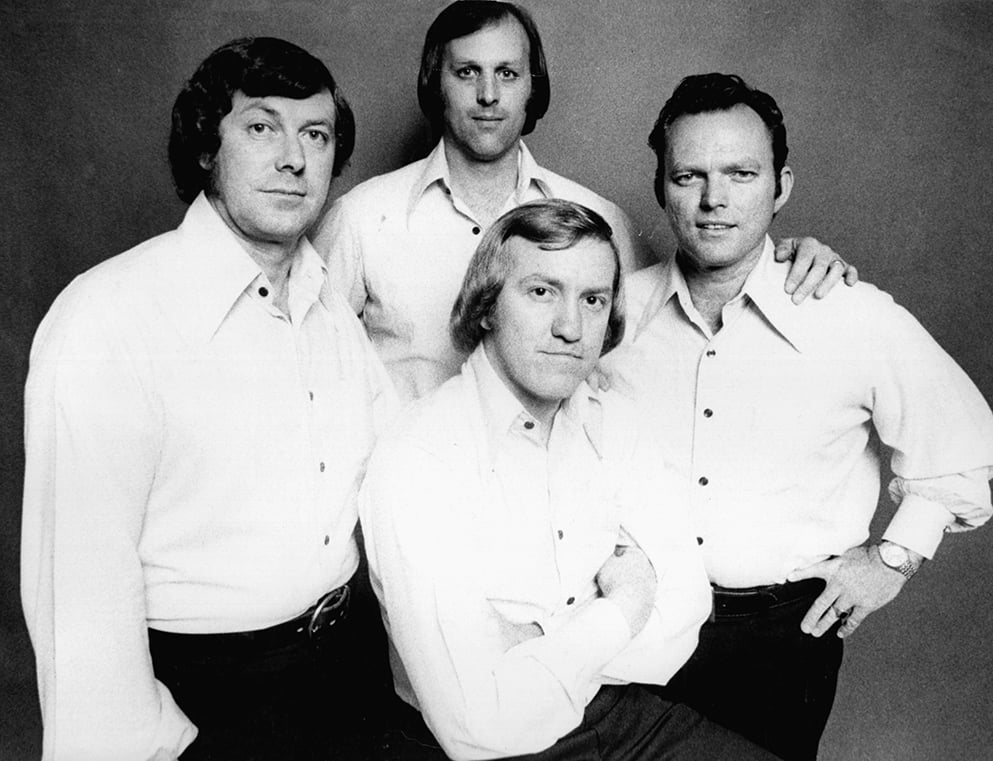
Emerson left the Country Gentleman in 1958 and went on to play with a variety of Washington, D.C. area musicians including Bill Harrell, Bill Clifton, Mac Wiseman, Frank Wakefield, Red Allen, Wayne and Bill Yates, and others. He also went on the road with Jimmy Martin two different periods in the early-to-mid 1960s and in the late 1960s performed with Cliff Waldron as Emerson and Waldron. Bill Emerson’s life in bluegrass music from the time he began learning how to play the banjo through rejoining the Country Gentlemen in 1970 is covered in detail in the first six installments of this article series.
When Eddie Adcock expressed interest in leaving the Country Gentlemen early in 1970, Bill Emerson was asked if he wanted the job. At the time, he was performing with Cliff Waldron, but the Country Gentlemen were offering more money than Emerson felt he could make performing in the Emerson and Waldron group and so he rejoined the Country Gentlemen. When he rejoined the “Gents,” as the group was affectionately known, the band consisted of Charlie Waller (guitar), Jimmy Gaudreau (mandolin), Bill Yates (bass), and Bill Emerson (banjo).
Between the time the band formed in 1957 and when Emerson rejoined in 1970, the personnel had not changed drastically. Gaudreau had replaced Duffey on the mandolin in 1969, and Adcock had been with the band since 1959 (Pete Kuykendall replaced Emerson, but left in June of 1959. Porter Church briefly replaced Kuykendall). Although they had moved through a number of different bass players since 1957, they had only had one guitar player (Waller), two mandolin players (Duffey and Gaudreau), and although four banjo players had been in the band, Adcock had been with them for nearly eleven of their thirteen years. The “classic” Country Gentlemen line-up to this point was Waller, Duffey, and Adcock, with Tom Gray on bass.
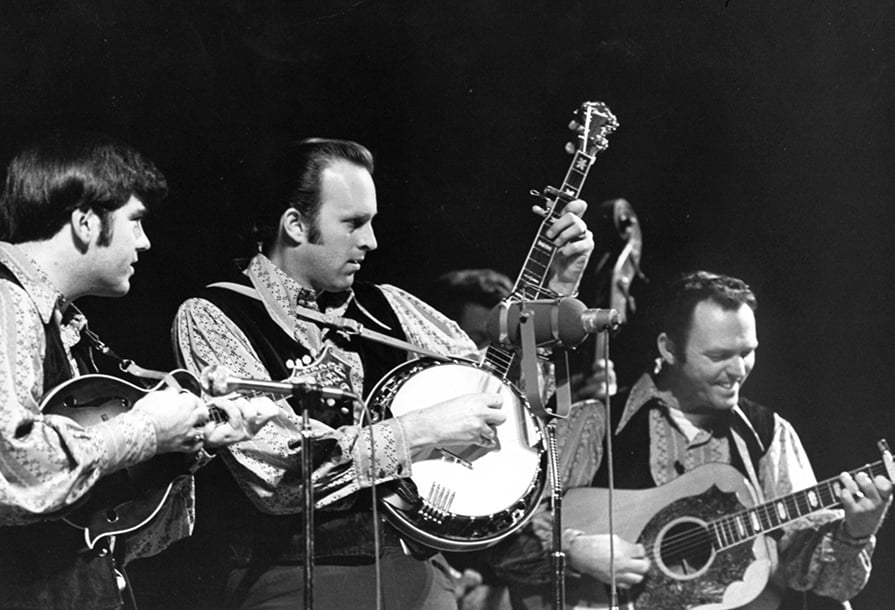
Since 1962, the Country Gentlemen had been playing every week at The Shamrock, a club on M Street in Washington, D.C.’s Georgetown district and had become very popular for their unique brand of bluegrass music. In a January, 1973 Washington Post newspaper article written by Barbara Bright, Charlie Waller is quoted as saying that in the early days at the Shamrock he would sometimes announce from the stage, “Don’t give us any trouble—we outnumber you.” However, they were soon performing to standing-room-only crowds two night per week at the Shamrock and, later, also playing one night per week at the Red Fox in Bethesda, Maryland.
During this time period the band was also traveling as far away as Kentucky, Ohio, and New York to perform at clubs and theaters. The bluegrass festival circuit was still in its infancy, but the band did also perform at early festivals at Watermelon Park (Berryville, Virginia), Bean Blossom (Indiana), Hugo (Oklahoma), and Camp Springs (North Carolina). In 1971 they also started their own festival at Indian Ranch in Webster, Massachusetts.
When Gaudreau was in the band, their shows at the Shamrock were on Monday and Tuesday nights. He said, “Whenever we went out for a weekend, we’d have to rush back to play the Shamrock on Monday night.” Later, the band played the Shamrock on Tuesday and Wednesday nights, perhaps to avoid the rush back home after weekend travel. Gaudreau also added that the shows at the Shamrock would serve as a place to work out new material. He said, “There were no formal rehearsals.”
With Emerson rejoining the band in 1970, some say that the Country Gentlemen went through their second “classic” period. Although the band had always pushed the bluegrass envelope—both in song selection and stage performance—having Emerson back in the band brought in material that defined a new era for the Country Gentlemen. In the 1973 Washington Post article, Emerson stated, “We started out looking for new directions, back when everybody was still singing about cabins and darlin’s.” Additionally, with Waller’s strong and relatively low lead voice, the band did not present the “high lonesome” sound typical of many bluegrass bands. In the same article, Waller explained, “I’ve heard people knock the tinny sound of bluegrass where you sing through your nose…We don’t really do that.”
By the time Emerson rejoined the band, Gaudreau was also hitting his full stride as a band member. In a phone interview in December of 2021, Gaudreau explained, “When we recorded New Look, New Sound (released by Rebel in 1970) I was new to the band and Eddie Adcock picked the material for that recording. By the time we recorded Sound Off, Bill Emerson had joined the band and we were all full partners and so we all had a say so in choosing the material. Emerson and I had the power of selection for that album.”
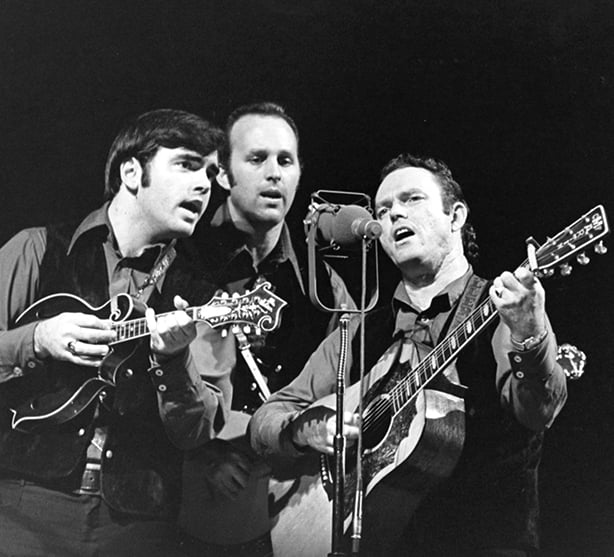
Sound Off (recorded in February 1971) became one of the Country Gentlemen’s classic recordings and featured one of their biggest hits, “Fox On The Run,” which Emerson brought to the band after having recorded it with Cliff Waldron. For this album the band also recorded what was to become one of Emerson’s most famous instrumentals, “Cowboys and Indians.” Gaudreau brought to this album a number of tunes that would help define the Country Gentlemen sound for this era, including the Beatles’ “Yesterday,” Graham Nash’s “Teach Your Children,” “Sea of Heartbreak,” which had been recorded by country singer Don Gibson, and Peter, Paul, and Mary’s “If I Were Free.” Charlie Waller brought in the “Johnny and Jack Medley” for this album. Mike Auldridge joined the band in the studio for the recording of Sound Off.
When asked about any change that might have occurred in the band’s sound when Emerson rejoined the Country Gentlemen, Gaudreau said, “For me, musically, Eddie Adcock changed my mind to thinking more abstract. He used the single-string technique and combined that with a Merle Travis inspired drop-thumb style. When Bill joined the band, he had a more traditional style. Up to that point, I had not played with a great Scruggs style banjo player. His timing, tone, and technique were so good that it helped my playing in a traditional way immensely. I started thinking more like a traditional bluegrass player. I became the beneficiary of his experience and, in particular, of what he had learned from his years with Jimmy Martin—namely timing, drive, command and execution, things you can only learn from a master.”
During the late summer of 1971 Gaudreau left the Country Gentlemen to “pursue other musical ventures” and Doyle Lawson joined the group. In an interview conducted for the Bluegrass Music Hall of Fame and Museum’s My Bluegrass Story television show, Doyle recalled that since he and Bill Emerson and Bill Yates were all veterans of Jimmy Martin’s Sunny Mountain Boys, Charlie Waller joked that the Country Gentlemen might now also be called “Charlie Waller and the Sunny Mountain Boys.”
In January of 1972, with Doyle Lawson on mandolin, the band traveled to Japan. They performed ten shows in eleven days. A recording of a show they performed at the Meguro-Sugino Hall in Tokyo was released as an album Live In Japan. In an email correspondence with this son, Mike, in April of 2021, Mike commented on the popularity of this recording. Bill’s response was, “It’s about the best we ever sounded during that era. No mistakes and everything jelled. On most of our songs it was me, Doyle, and Charlie (singing). Bill Yates only sang harmony on a few songs.”
Country Gentlemen Awards
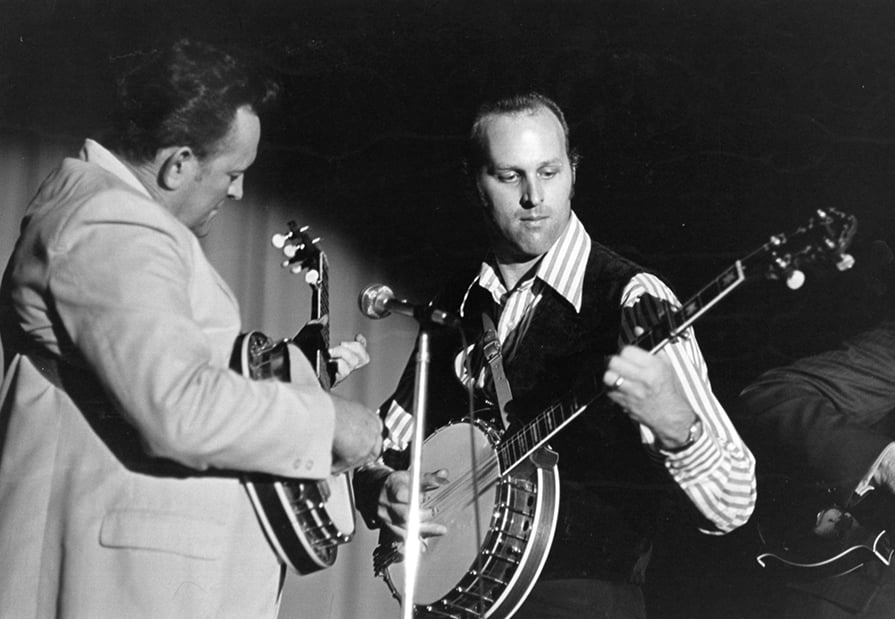
During his time with the Country Gentlemen (1970 to 1973), Bill Emerson and the band were the recipients of multiple awards. In the 1971 Bluegrass Unlimited Readers Poll, The Country Gentlemen were voted “Favorite Band” and Bill Emerson was listed among the top ten banjo players (with Don Reno winning the “Favorite Banjoist” award). Bill Yates won the “Favorite Bassist” award and Charlie Waller won the “Favorite Lead Singer” award and was second to Doc Watson in the “Favorite Guitarist” category. Jimmy Gaudreau was second to Bill Monroe in the “Favorite Mandolinist” category.
In Muleskinner News magazine, the Country Gentleman won “Band of the Year” in 1971, ‘72, and ‘73. In 1971 Waller also won “Best Guitar Player.” In 1972 and ‘73 Waller was voted the “Best Bluegrass Singer.” Bill Emerson won “Best Banjo Player” in 1972 and ‘73. Bill Yates was the “Best Bass Player” in 1971, ‘72 and ‘73. Additionally, the band won “The Best Vocal Group” in 1971 and ‘72. In 1971 the group’s recording of ‘Teach Your Children” won “Song of the Year,” their recording of “Ballad of the Rebel Soldier” won “Song of the Year” in 1972, and in 1973 their recording of John Prine’s “Paradise” won “Song of the Year.” Lastly, in 1972 their album The Award Winning Country Gentlemen won “Album of the Year.” To say the Country Gentlemen were “sweeping” the bluegrass awards in the early 1970s is an understatement and gives testament to the band’s popularity during this time period.
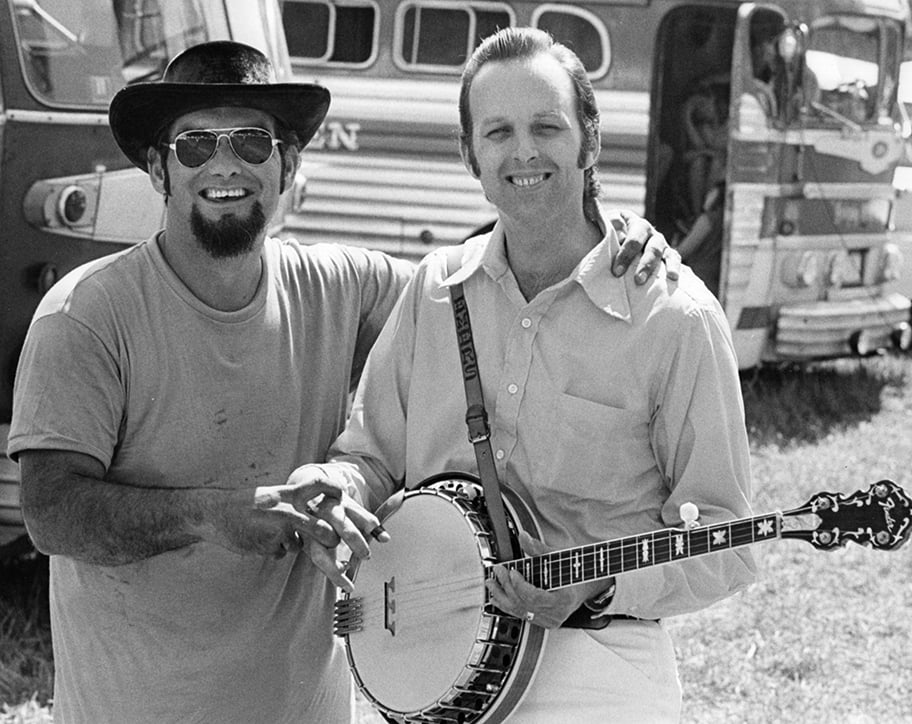
In the September/October 1970 issue of Muleskinner News, Fred Bartenstein wrote about the Country Gentlemen’s configuration after Emerson rejoined the band. He said, “The break-in period for this group was short if it existed at all. Charlie had played with Bill Emerson in the original Gents and Emerson and Yates were old partners from way back with the Yates Bros., Red Allen, and Jimmy Martin. Jim Gaudreau’s talent and versatility enabled him to fit right in with what the others were doing. The result is a group unique because each man bears his own weight. All of the present Country Gentlemen are musicians and performers enough to be ‘leaders’: Charlie Waller with his flawless and exciting rhythm guitar and smooth lead singing; Bill Emerson with his absolute Blue Grass approach to the banjo, on which he is unequalled for precision and range; Jim Gaudreau, with his creditable high tenor voice and jazzy, inventive mandolin; and Bill Yates, a great singer from bass (listen to ‘Tennessee’) to high lead (check the soon to be released ‘Going Up Caney’ by Bill Monroe), solid bass fiddle man, inspired comic, and tireless worker. Each has his own slightly different approach to the music all four play; depending on the composition and mood of the audience, one member of the group or another can unnoticeably take “front and center.” This approach also holds true to the comedy routines—each has his own style, and it is give-and-take as to which will have priority.”
Country Gentlemen Recordings (1970-1973)
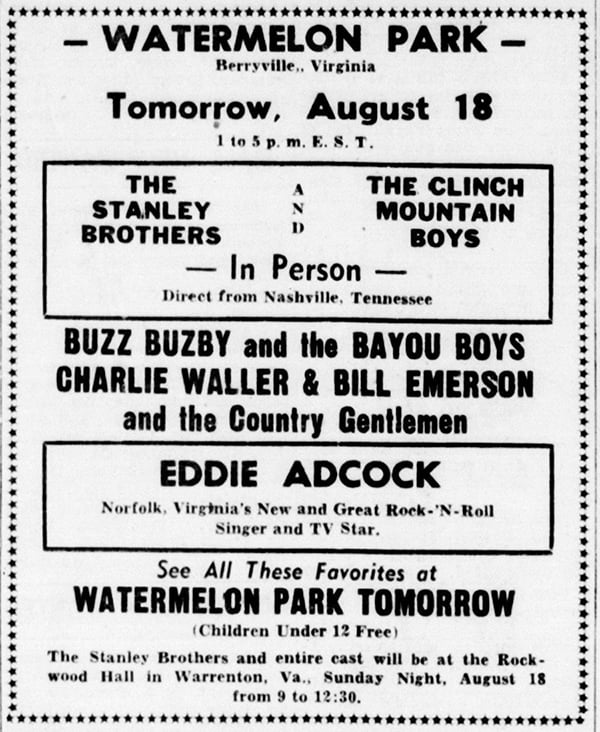
The first recording that Bill Emerson made with the Country Gentlemen after rejoining the band was a gospel recording, One Wide River to Cross, for Rebel Records. The recording occurred late in 1970 at Roy Homer’s recording studio in Clinton, Maryland. In addition to Emerson (banjo), Waller (guitar), Gaudreau (mandolin), and Yates (bass), Mike Auldridge played the Dobro on some of the tracks. They also recorded a rendition of the Glen Campbell song “Less of Me” that would used on a soundtrack for a Columbia Pictures movie.
In February 1971, the Country Gentlemen recorded another album for Rebel titled Sound Off. As mentioned previously, this album helped to solidify the band’s new sound. Once again, Mike Aldridge was brought in to play the Dobro. In September and December of 1971, the band when back into the studio and recorded The Award-Winning Country Gentlemen for Rebel. Perhaps the title was created after the band won so many Bluegrass Unlimited awards, in the December 1971 issue, and Muleskinner News awards at the Camp Spring Festival on Labor Day Weekend in 1971. In the liner notes for the 1972 pressing of the record, Len Holsclaw wrote “1971 was a year that The Gentlemen’s great crowd-pleasing abilities earned them a host of awards from two highly respected trade magazines. These awards were based on ballots cast by the most important people in the music industry – YOU – the fan.”
As mentioned previously, this album was award-winning itself, winning the Muleskinner News “Best Album of the Year” award in 1972. The hit song from this record was “The Legend of the Rebel Soldier.” Other recognizable tunes on this recording are Gordon Lightfoot’s “Redwood Hill,” Bob Dylan’s “Walking Down the Line,” “Little Bessie,” Carter Stanley’s “The Fields Have Turned Brown,” and John Denver’s “Country Roads.” For this recording Doyle Lawson was playing mandolin with Emerson (banjo), Waller (guitar), and Yates (bass). Once again, Auldridge added his Dobro talents to several cuts.
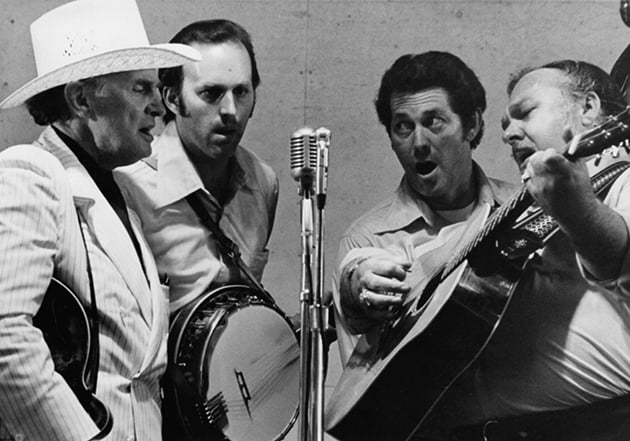
In an interview in the June 1972 issue of Muleskinner News, Emerson explained their approach, saying, “What we want to try to do is to take good songs, good material, and perform them our own way. We have some Lightfoot things that we want to do, some Denver things, and some Kristofferson things, and for sure they are the best contemporary writers of our time—there’s no doubt about it, nobody can beat them; that’s the kind of material we want to do.”
The next album that the Country Gentlemen recorded was to be the last with Bill Emerson as a band member. This one was recorded in 1972 for Vangaurd and was titled The Country Gentlemen. On this recording Mike Auldridge, once again, was hired to play Dobro, but also Ricky Skaggs came in to play the fiddle and Al Rogers played drums. John Prine’s “Paradise” and “Souvenirs” were included on this recording as was Kris Kristopherson’s “Casey’s Last Ride,” Paul Simon’s “The Leaves That Are Green,” the traditional “House of the Rising Sun,” Gordon Lightfoot’s “Mother of a Miner’s Child,” and “Don Quxote,” John Duffey’s classic “Bringing Mary Home,” and Steve Goodman’s “City of New Orleans.”
In addition to the Country Gentlemen albums, Bill Emerson, Doyle Lawson, and Charlie Waller also helped out Mike Auldridge on his first solo recording— the 1972 release from Takoma Records titled Dobro. The three Country Gentlemen did not play on every track of this recording as Ben Eldridge (banjo and guitar), John Duffey (mandolin), and David Bromberg (guitar) also appeared on the recording.
Leaving the Country Gentlemen for the US Navy
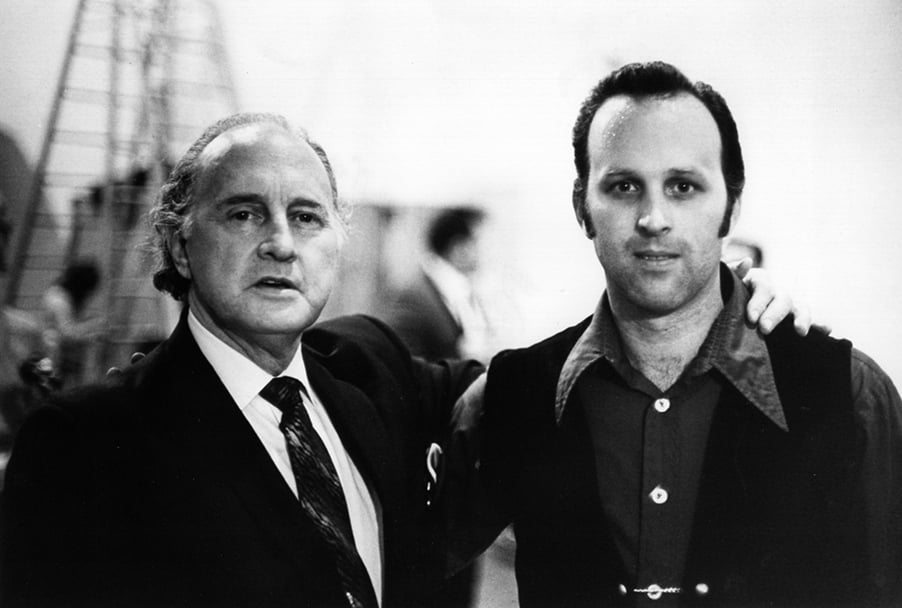
In the early 1970s the popularity of bluegrass music was on the rise and, if magazine reader’s polls tell the tale, the Country Gentlemen were the number one band in the country. Even so, the life of a musician can be tough and there is not a lot of security or stability in terms of health benefits, retirement, etc. So, when Bill Emerson was presented the opportunity to play music full-time as a member of the US Navy band, he grabbed it. He left the Country Gentlemen in May of 1973 to join the Navy and perform in their country band.
In the next installment of this article series, I will address Bill’s decision to join the Navy in more detail and provide information about the work he did during his twenty years as a Navy musician.
Share this article
6 Comments
Leave a Comment Cancel Reply
This site uses Akismet to reduce spam. Learn how your comment data is processed.
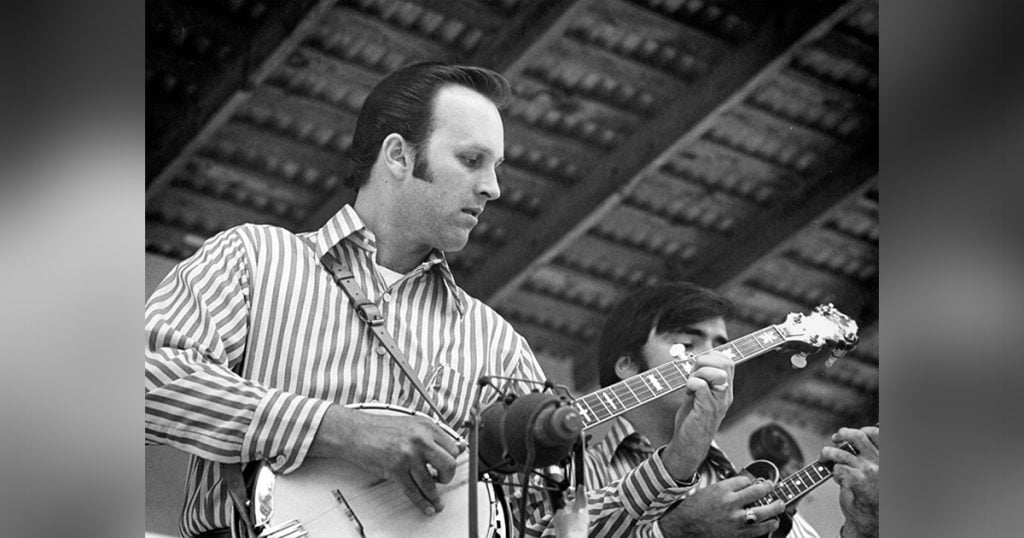
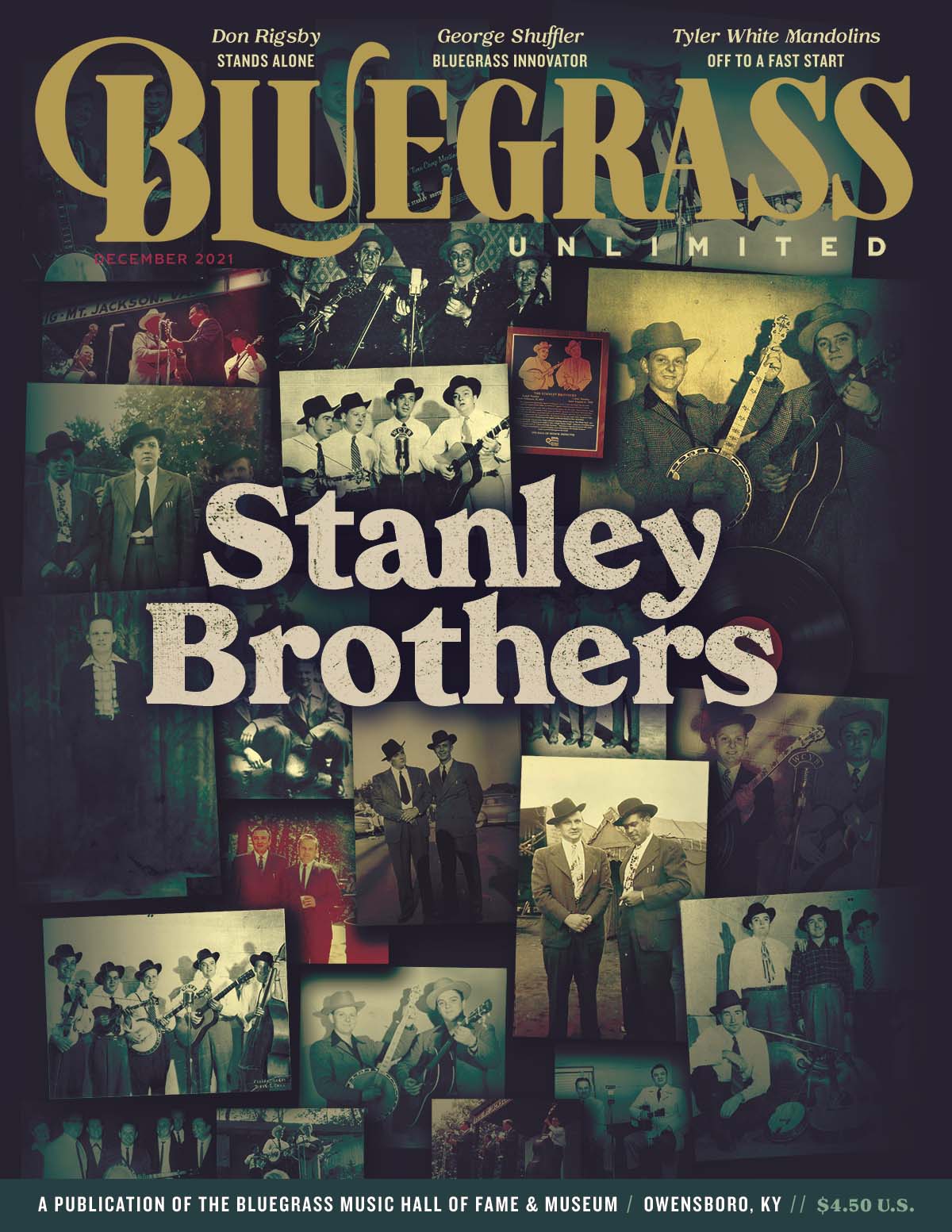
This was the period where I began to notice the sound of the Country Gentlemen. I became obsessed listening to two groups…the Country Gentlemen and the Seldom Scene. They helped to form my bluegrass career, though at the time I didn’t realize it. It was a wonderful time to be in the DC area as a bluegrass fan and musician!
Buster Sexton, my two favorite groups as well. I must say, Bill Emerson taught you very well, I’ve never played music with a better musician than you, proud to call you a friend.
I saw the Gents in 1972 at the ‘In the Alley’ coffee house in Encinitas just N. of La Jolla shortly after (or maybe before) their tour of Japan. They were terrific, and I got to talk with Emerson about my Gibson banjo which he had before I got it in 1962.
The ‘In the Alley’ place I refer to was/is actually in nearby/bigger Escondido, CA.
I just discovered. I got Bill Emerson to autograph the head of that banjo, probably around the 1990’s or so.
I too was lured in by flat&Scruggs,Tom T Hall,Country Gents,Seldom Scene, Goose creek Symphony,The Stanley Brothers&JD Crowe&the New South’s Early lineups of (Tony Rice,Ricky Skaggs,Keith Whitley,Jerry Douglass),these Groups were the Benchmarks of the 60’s,70’s&80’s.